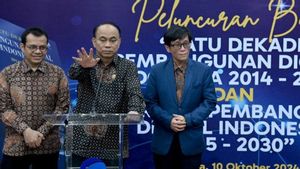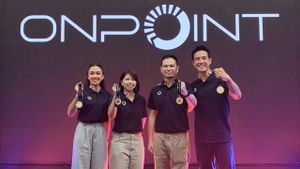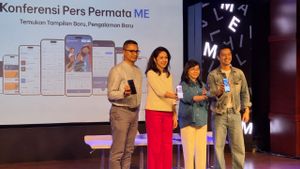JAKARTA The awarding of Nobel Prizes in the field of Chemistry and Physics to several pioneers of artificial intelligence (AI) linked to Google this week has sparked debate about the company's dominance of research and how breakthroughs in computer science should be recognized.
Google, which is already at the forefront of AI research, is now facing competitive pressure from OpenAI, backed by Microsoft, as well as intense scrutiny from the US Department of Justice.
On Wednesday, October 9, Demis Hassabis, co-founder of DeepMind, Google's AI unit, and his colleague John Jumper was awarded the Nobel Prize in the field of Chemistry, along with US biochemist David Baker for their work in outlining the microscopic protein structure.
Meanwhile, Google's former researcher Geoffrey Hinton won the Nobel Prize in Physics on Tuesday, October 8, alongside US scientist John Hopfield for their early discovery in machine learning that paved the way for the current development of AI.
However, some have questioned the relevance of the Nobel category given. Professor Dame Wendy Hall, a computer scientist and AI adviser to the United Nations, revealed that although recipients' work deserves recognition, the absence of the Nobel category for mathematics or computer science has affected the outcome.
SEE ALSO:
In addition, Noah Girisiracusa, a professor of mathematics at Bentley University, also considers Hinton's victory to be inappropriate in the field of Physics. According to him, although Hinton has done an extraordinary job, his invention is not pure physics.
The debate highlights the inequality between big tech companies like Google, which has unlimited resources to dominate AI research, and traditional academies struggling to compete.
Geoffrey Hinton himself has expressed concern about the potential danger of AI, even quitting Google last year to be more free to talk about the existential threat presented by AI that is getting smarter.
The increasing dominance of Google and other major technology companies in this scientific study underscores the need for greater public investment in scientific research to balance innovation beyond the scope of commercial interests.
The English, Chinese, Japanese, Arabic, and French versions are automatically generated by the AI. So there may still be inaccuracies in translating, please always see Indonesian as our main language. (system supported by DigitalSiber.id)


















